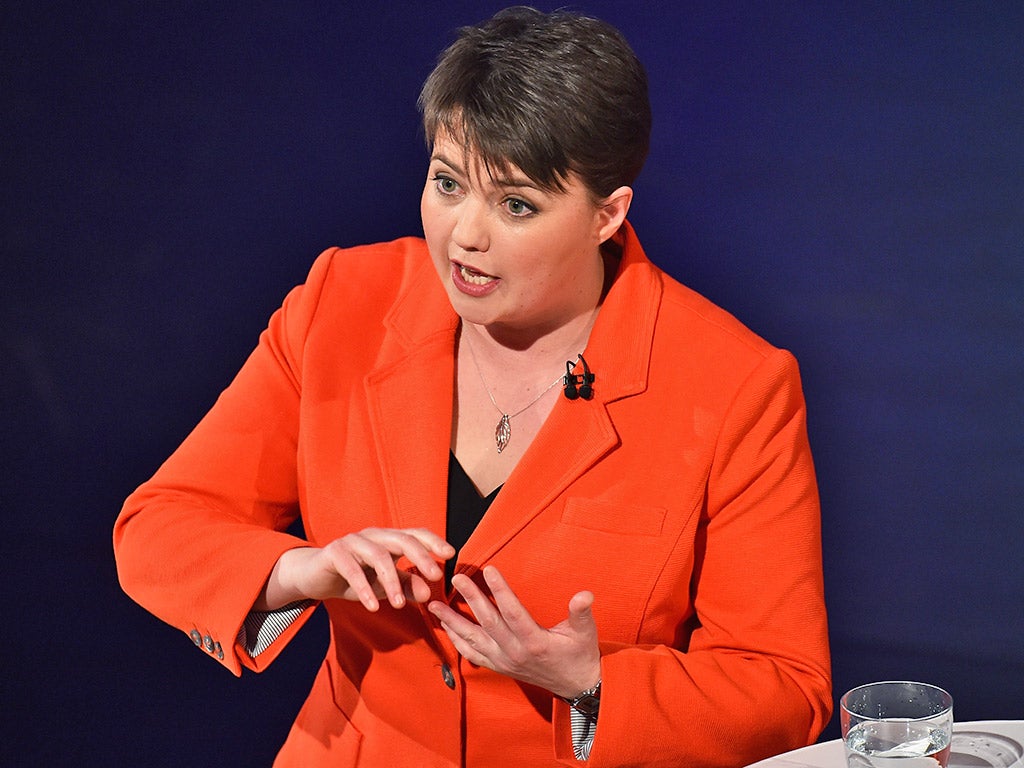Scotland election: Tory plans on prescription charges and post-graduate tuition fees may cost votes, claims poll
They have been dubbed the party of ‘hidden taxes’ for insisting that patients and students north of the border should be asked to pay more

Proposals set out by the Scottish Conservatives to reintroduce NHS prescription fees and charge graduates up to £6,000 after leaving university may cost the party at the ballot box, according to an opinion poll published a month before the Holyrood election.
The Tories’ plan to charge patients around £8 for prescriptions is one of the least popular policies of the Scottish Parliament election campaign so far, attracting an average approval rating of just 5.3 out of 10, the Ipsos Mori poll for BBC Scotland found.
By contrast, the continuation of free university tuition remains one of the most popular policies among Scots, with an average score of 8.1. The results will not make pleasant reading for the Tories, which has been dubbed the party of “hidden taxes” for insisting that patients and students north of the border should be asked to pay more.
The party’s leader Ruth Davidson came under fire at last week’s televised election debate after saying she was in favour of charging students “just over £1,500 a year” for their university education in the form of a fee after they started earning.
The plan, which would amount to £6,000 for those taking a four-year degree, has been described as a “graduate tax”. Ms Davidson has insisted the charge would raise £100m a year, although this figure has been questioned by her political opponents.
Neil Findlay, Scottish Labour’s candidate for Almond Valley, said the poll confirmed that the two Tory policies were unpopular. “Now more than ever we need a health service based on patient need, not the ability to pay,” he said. “Scots also overwhelmingly back free tuition. Someone’s chance to get on in life should be based on their talent, their potential and their work ethic, not how much money their parents earn.”
Increasing NHS spending by at least the same rate as England over the next five years drew the highest level of support from the 1,000 voters questioned, attracting an average score of 8.3 out of ten. The poll also showed that Scots continue to be divided on the issue of independence, with voters split down the middle on whether another referendum should be held in the event of the UK leaving the EU.
Responding to the poll, Ms Davidson pointed out that her party was in favour of boosting NHS spending, which was very important to voters. “People think the priority should be a fully-funded health service, and that's exactly what the Scottish Conservatives would deliver,” she said.
“Our NHS guarantee is a promise to increase health spending in line with inflation, by 2 per cent or with Barnett consequentials – whichever is highest. That means patients can get the care they need and staff won’t feel overstretched on wards.”
Join our commenting forum
Join thought-provoking conversations, follow other Independent readers and see their replies
Comments
Bookmark popover
Removed from bookmarks